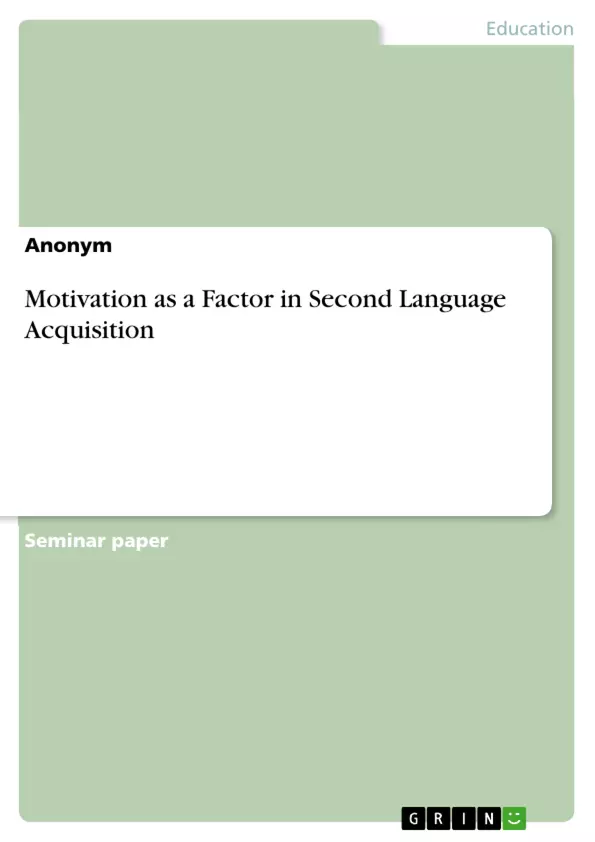"The limits of my language are the limits of my world." Ludwig Wittgenstein
Ludwig Wittgenstein was a philosopher of the 19th century; his quotation underlines the importance of second language acquisition. We live in a globalised world where language is the most important way of communication. People all over the world share their cultures and beliefs through their language and interact with each other. Aside from social factors, language plays an important economic role. Nowadays it is not enough to speak one language; many employers prefer employees, who are multilingual.
Moreover, many children are growing up multilingual, which is regarded as a huge advantage. In larger terms, they are seen as positive result of our globalised world. Besides this, English is the world language and connects the world. Many schools in foreign countries started offering English lessons in primary schools to increase the number of fluent English speakers. According to this, many teachers try to optimise their lessons and way of teaching. Second language acquisition has become a huge field for further research.Theories and models are getting improved in order to create better learning environments and help teachers to use authentic and optimised methods in their lessons.
Many theories and models underline the significance of motivation during language acquiring processes. But how important is motivation in second language acquisition and what effect does it have while acquiring a new language? This term paper will give a brief definition of the term motivation. Then it will present some important and influential motivation theories in order to discuss the influences on second language acquisition. Finally, it will answer the question what teachers can do to increase the motivation in language classrooms. [...]
Inhaltsverzeichnis (Table of Contents)
- Introduction
- What is Motivation?
- Motivation-Theories
- Gardner and Lambert
- Dörnyei and Ottó
- Self-determination theory by Deci and Ryan
- Use of Motivation-Theories in Language Classroom
- Motivation in the Classroom - How can Teachers influence the Motivation of their Students?
- The Teacher's Personality
- Fulfilling Student's Needs
- Conclusion
Zielsetzung und Themenschwerpunkte (Objectives and Key Themes)
This term paper aims to explore the significance of motivation in second language acquisition. It will provide a definition of motivation and delve into prominent motivation theories to understand their influence on the language learning process. Furthermore, it will address strategies teachers can employ to enhance student motivation in language classrooms.
- Definition and significance of motivation in second language acquisition
- Influence of motivation theories on language learning success
- Key factors contributing to student motivation in language classrooms
- Strategies for teachers to enhance student motivation
- The role of motivation in the global context of language learning
Zusammenfassung der Kapitel (Chapter Summaries)
- Introduction: This chapter establishes the context for the paper by emphasizing the importance of second language acquisition in a globalized world. It highlights the increasing demand for multilingual individuals and the role of motivation in facilitating successful language learning.
- What is Motivation?: This chapter explores various definitions and perspectives on motivation, emphasizing its inherent complexity and subjective nature. It discusses the importance of motivation in achieving desired goals, including language acquisition, and acknowledges the challenges associated with measuring and influencing it.
- Motivation-Theories: This chapter introduces the influential work of Gardner and Lambert, who studied the relationship between motivation and language learning success. It explains the key concepts of integrative and instrumental orientation, highlighting how learner goals and attitudes towards the target language and culture influence motivation.
- Use of Motivation-Theories in Language Classroom: This chapter explores the practical applications of motivation theories in the language learning environment. It delves into how these theories can inform teaching practices and create more effective learning experiences for students.
- Motivation in the Classroom - How can Teachers influence the Motivation of their Students?: This chapter focuses on the role of teachers in fostering student motivation. It examines the impact of teacher personality and the importance of meeting students' individual needs to create a positive and engaging learning environment.
Schlüsselwörter (Keywords)
The main keywords and focus topics of this text include: second language acquisition, motivation, motivation theories, integrative orientation, instrumental orientation, language learning success, teaching strategies, student motivation, teacher personality, and language classroom environment.
Frequently Asked Questions
Why is second language acquisition important in a globalized world?
Language is the primary mode of communication for sharing cultures and interacting globally. Economically, many employers now prefer multilingual employees.
Which motivation theories are discussed in this paper?
The paper covers Gardner and Lambert's work, Dörnyei and Ottó's models, and the Self-determination theory by Deci and Ryan.
What is the difference between integrative and instrumental orientation?
Integrative orientation relates to the learner's desire to interact with the target language culture, while instrumental orientation refers to practical goals like career advancement.
How can teachers influence student motivation?
Teachers can influence motivation through their personality and by fulfilling the specific individual needs of their students.
What is the core objective of this term paper?
The objective is to explore the significance of motivation in second language acquisition and identify strategies for teachers to enhance it in the classroom.
- Quote paper
- Anonym (Author), 2017, Motivation as a Factor in Second Language Acquisition, Munich, GRIN Verlag, https://www.hausarbeiten.de/document/386170


